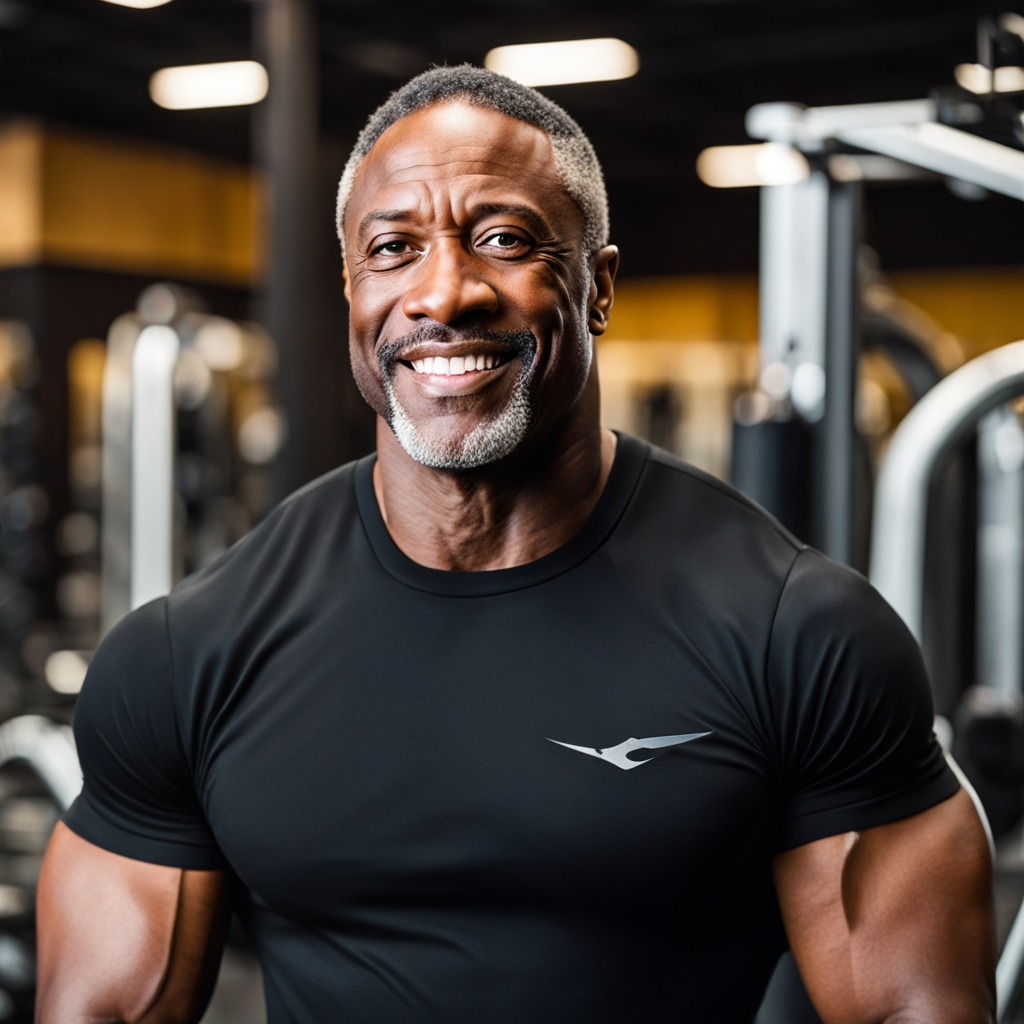Testosterone serves as an influential hormone that fosters feelings associated with masculinity—bestowing upon individuals not only vigor and endurance but also heightened sexual desire alongside increased muscle density and an enhanced sense of self-assurance. Alas! With each passing year en route towards graying locks and advancing age lines adorning our faces—testosterone levels undergo depletion. It is within this context that adverse implications arise affecting essential elements ranging from emotional welfare unto appearances notwithstanding overall physical fitness outcomes warranting urgent attention for remedial actions against this concerning issue plaguing us all alike. Therefore arises the compelling question—when precisely does testosterone depletion commence —and what potential solutions exist for mitigation? Together let us embark upon an exploration to seek definitive clarity.
The Age Factor: How Testosterone Changes Over Time

It is a disheartening reality that men's testosterone levels begin to decline slowly after the age of 30. As the years pass. You may experience a decrease of approximately 1 to 2 percent in your testosterone annually. By the time you reach the age of 50. It is possible to have about 20 percent less testosterone than you did in your 30s. This decrease can be quite impactful. However it is essential to recognize that age alone is not the sole contributor to declining testosterone levels. Various factors can also result in lower testosterone, including:
Stress
It is essential to note that stress has the potential to decrease your testosterone levels due to the increase in cortisol, a hormone that impedes testosterone production. In order to counteract this negative effect. It is advised to seek out healthy pathways for managing stress. Engaging in activities such as meditation, yoga, breathing exercises or pursuing hobbies can offer effective means of coping with stress.
Obesity
When an individual is obese. Their testosterone levels decrease as a result of elevated estrogen levels. Estrogen is a hormone that works against testosterone. In order to address this issue it is recommended to adopt a balanced diet and engage in regular exercise to achieve weight loss.
Lack of sleep
Giving your body enough time for restorative sleep and hormone production is paramount. It is suggested that you strive for a minimum of seven hours of quality sleep each night. In order to enhance the quality of your resting period. It would be beneficial if you avoid the consumption of caffeine or nicotine and limit exposure to blue light before retiring for the evening
Poor diet
The levels of your hormones can be influenced by the diet that you consume. It is advisable to include an ample amount of protein, healthy fats, complex carbohydrates, fruits, and vegetables in your diet. On the other hand processed foods, sugar, trans fats, and alcohol should be avoided.
Smoking
Smoking has the potential to harm your blood vessels. Leading to a decrease in blood flow towards your testicles. This. In turn. Can negatively impact testosterone production. In order to alleviate this issue it is recommended that you quit smoking or utilize nicotine replacement products to aid in your cessation journey.
Alcohol
Higher estrogen levels and lower testosterone levels may occur due to alcohols' interference with the livers' breakdown of estrogen. To mitigate this. It is advisable to moderate your alcohol intake or completely refrain from consuming it.
Medications
Certain medications may have an impact on your testosterone levels by influencing either your pituitary gland or testicles. This category includes opioids, steroids, antidepressants, and antihistamines. It would be advisable to consult with your doctor regarding the potential effects of these medications on your testosterone levels and explore the possibility of switching to alternative options.
Health conditions
Certain health conditions have the potential to affect your hypothalamus, pituitary gland, or testicles and consequently lead to low testosterone. These conditions encompass diabetes, thyroid disorders, high blood pressure, high cholesterol, depression, and anxiety. It is essential to seek appropriate treatment for any underlying health conditions that may be impeding your testosterone levels.
So even if you are in your 30s or 40s, you may have low testosterone if you have any of these risk factors. How do you know if you have low testosterone? Well, there are some signs and symptoms that can clue you in.
The Conclusion: Don’t Let Low Testosterone Get You Down
Ensuring optimal testosterone levels is essential for maintaining mens health and well being as it influences their physical appearance, sexual function, mental state and overall quality of life. However it is common for testosterone levels to decline with age and due to other factors. Nevertheless there are effective ways to naturally boost these hormone levels or consider suitable treatments if required. By taking proactive steps towards enhancing testosterone production you can regain vitality, confidence, and happiness. Remember that countless men experience low testosterone yet many find themselves hesitant when seeking assistance or treatment. Avoid becoming one of those individuals who neglects their needs. Instead, empower yourself by taking charge of both your health and life. Initiating a conversation with your doctor will enable you to learn more about different approaches available for increasing testosterone levels so that you can once again feel like a man.






